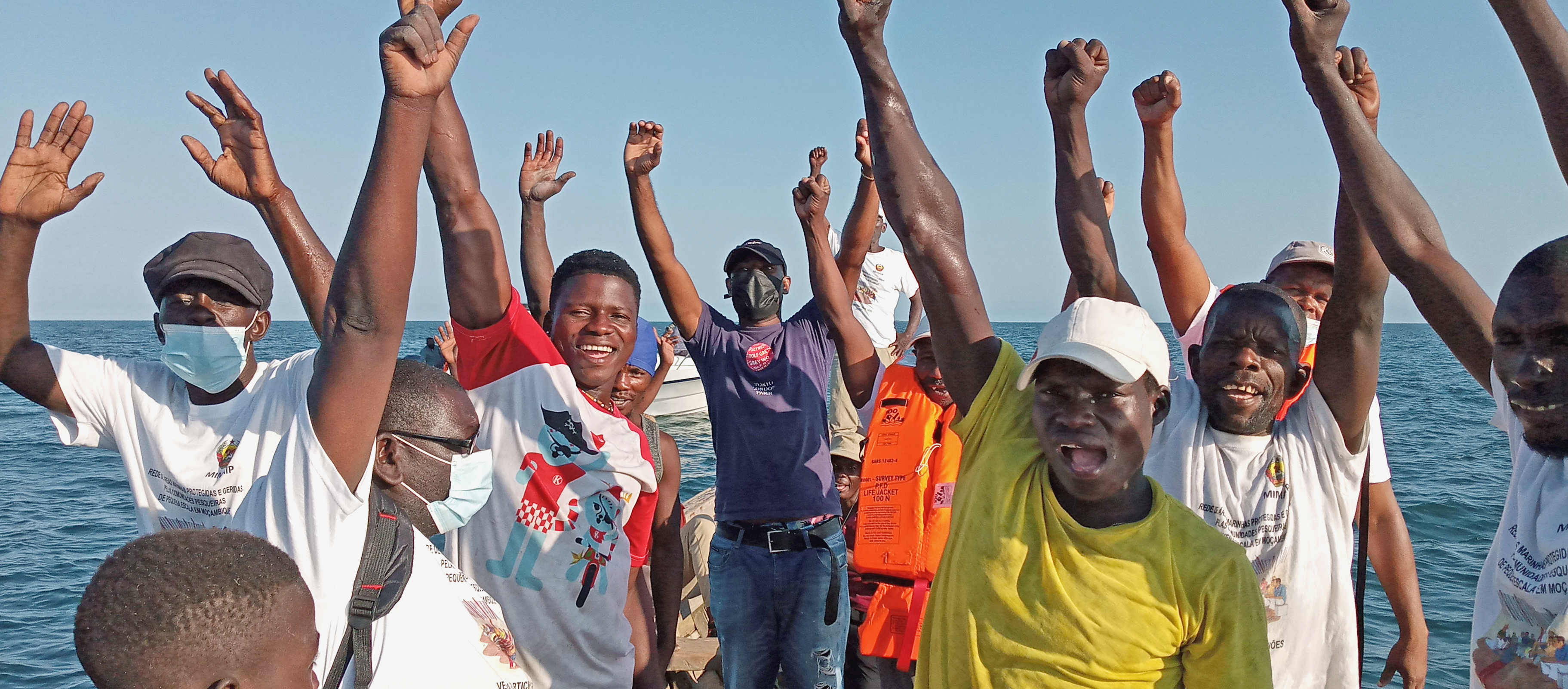

Rare utilise son expertise en marketing social pour concevoir des campagnes d'adoption de comportements, en s'appuyant sur les données des sciences sociales pour encourager les pratiques de pêche durables, renforcer les défenseurs locaux et donner de l'élan aux projets de zones de pêche gérées par les communautés, y compris les réserves marines interdites. Ces campagnes sont adaptées au contexte local et peuvent prendre la forme d'événements célébrant l'importance des pêcheurs, de messages publics par le biais de panneaux d'affichage, de programmes radiophoniques et télévisés, de campagnes de SMS, etc.
Pour que les campagnes d'adoption de comportements soient efficaces, il faut bien comprendre les techniques mises en évidence par la recherche en sciences sociales pour influencer un "coup de pouce", faire évoluer les comportements au sein d'une communauté et instaurer un changement durable. Rare dispose d'un centre de recherche sur le comportement et l'environnement dédié à la compréhension de la science qui sous-tend le changement de comportement, et d'un centre de connaissances dédié à la formation du personnel de Rare à des stratégies concrètes et éprouvées qui peuvent être appliquées à des contextes locaux.
Il est essentiel de s'adapter aux contextes locaux, d'où l'importance de disposer d'un personnel de mise en œuvre et de partenaires sur le terrain qui nouent des relations, identifient les dirigeants et les défenseurs de la communauté et donnent un aperçu des types d'activités et de messages susceptibles de trouver un écho auprès d'une communauté donnée. Ces stratégies doivent être adaptables. Lorsque la pandémie de COVID-19 a commencé, il est devenu impossible d'organiser de nombreux événements en personne. En nous adaptant à ces conditions et à l'évolution des restrictions, nous avons pu identifier de nouvelles stratégies qui, dans certains cas, ont permis une sensibilisation encore plus grande et un potentiel d'adoption de comportements : des rassemblements virtuels qui ont permis à un plus grand nombre de personnes d'assister à des événements ; des événements à distance sociale et des défilés en plein air ; et l'utilisation de SMS et de programmes radio pour atteindre des centaines de milliers de Mozambicains vivant sur la côte. Enfin, nous avons tiré d'importantes leçons sur l'importance des dirigeants locaux. L'initiative Coastal 500 de Rare s'appuie sur les engagements des maires et d'autres responsables locaux, les positionnant comme une force motrice pour un changement durable.